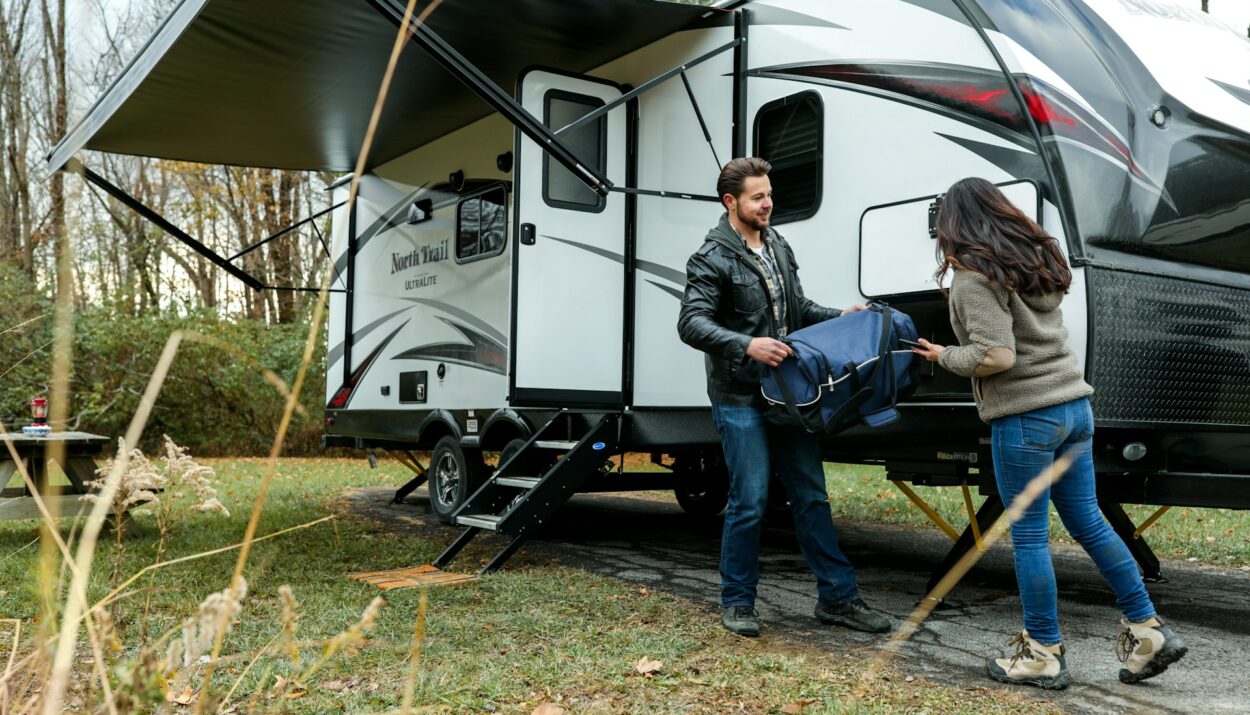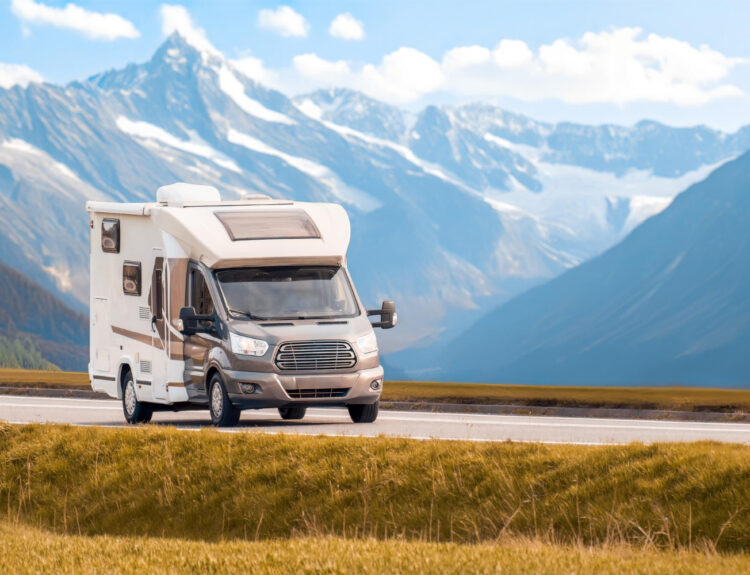Regular maintenance is crucial to keeping your RV in top condition, ensuring safety, and prolonging its lifespan. This comprehensive guide covers essential maintenance tasks, including the benefits and implementation of RV skirting, which can significantly enhance your RV’s efficiency and comfort, especially in extreme weather conditions.
1. Regular Inspections
Consistent inspections are the foundation of effective RV maintenance. Regularly check the following:
- Roof and Seals: Look for cracks, leaks, and damage. Reseal as necessary to prevent water ingress.
- Tires: Monitor tire pressure and tread depth and look for signs of wear or damage. Rotate and balance tires regularly.
- Brakes: Ensure brakes are functioning correctly and replace brake pads as needed.
- Lights: Test all exterior and interior lights, including turn signals and brake lights.
2. Plumbing System
The plumbing system in your RV is essential for comfort and convenience. Maintain it by:
- Checking for Leaks: Inspect pipes, hoses, and fittings for leaks regularly.
- Water Pump: Ensure the pump functions correctly and clean the filter periodically.
- Holding Tanks: Regularly empty and clean the black and gray water tanks. Use RV-safe chemicals to break down waste and reduce odors.
3. Electrical System
Keeping the electrical system in good condition is vital for safety and functionality:
- Battery Maintenance: Check the charge level, clean terminals, and secure batteries. Replace batteries as needed.
- Connections: Inspect all electrical connections and wiring for signs of wear or corrosion.
- Generators and Inverters: Regularly service generators and inverters according to the manufacturer’s recommendations.
4. HVAC System
A well-maintained HVAC system keeps your RV comfortable in all weather conditions:
- Air Conditioning: Clean or replace filters regularly. Check for leaks and ensure the system is functioning correctly.
- Furnace: Clean the furnace and inspect the exhaust system. Ensure proper ventilation to prevent carbon monoxide buildup.
5. Exterior Maintenance
The exterior of your RV is constantly exposed to the elements, so it requires regular care:
- Washing and Waxing: Regularly wash and wax the exterior to protect the finish and prevent rust.
- Windows and Doors: Check seals and caulking around windows and doors. Replace damaged seals to prevent leaks.
- Awning Care: Clean and inspect the awning for tears or mold. Ensure it retracts and extends properly.
6. RV Skirting
RV skirting is a valuable addition to your maintenance routine, especially if you’re in extreme weather conditions:
- Insulation: Skirting helps insulate your RV’s underside, maintaining a stable interior temperature. This is particularly important in winter to prevent pipes from freezing.
- Protection: It shields the underside of your RV from wind, debris, and pests.
- Types of Skirting:
- Rigid Skirting: Made from materials like plywood or vinyl panels, offering excellent insulation but can be more challenging to install.
- Soft Skirting: Typically made from heavy-duty fabric or vinyl, easier to install and remove but may offer less insulation.
- Inflatable Skirting: Easy to install and remove, provides good insulation, and compact for storage.
- Installation and Maintenance: Choose the right type of skirting for your needs. Ensure it is properly installed, and inspect it regularly for damage or wear.
7. Seasonal Maintenance
Adjust your maintenance routine based on the season:
- Winterizing: If storing your RV for the winter, drain all water systems, add antifreeze, and cover the RV to protect it from the elements.
- Spring Prep: De-winterize by flushing the water system, checking for any winter damage, and performing a thorough inspection and cleaning.
8. Routine Cleaning
Keeping your RV clean not only makes it more enjoyable but also helps to spot potential issues early:
- Interior Cleaning: Vacuum, dust, and wipe down surfaces regularly. Clean appliances and check for signs of pests.
- Exterior Cleaning: Wash the exterior, including windows and mirrors. Clean the roof to prevent mold and mildew buildup.
9. Safety Checks
Regular safety checks ensure that your RV is ready for the road:
- Fire Extinguishers: Check expiration dates and ensure they are easily accessible.
- Smoke and Carbon Monoxide Detectors: Test detectors monthly and replace batteries as needed.
- Emergency Kit: Keep an emergency kit with first aid supplies, tools, and essential items.
Conclusion
Consistent RV maintenance is key to enjoying a safe and comfortable travel experience. Following these tips, including the strategic use of RV skirting, you can keep your RV in top shape and ready for any adventure. Whether exploring new destinations or parking in your favorite campground, a well-maintained RV ensures peace of mind and endless enjoyment on the road.






